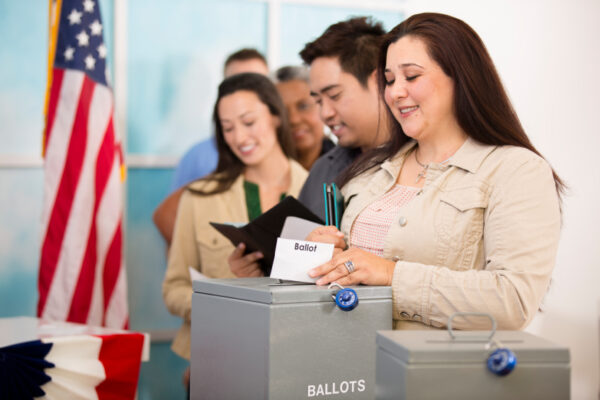The Voting Rights Act of 1965, signed into law by President Lyndon B. Johnson, outlawed discriminatory voting practices that were adopted by several Southern states after the Civil War. It was a crowning piece of legislation amidst the civil rights movement but now it is now under attack, with serious implications for Texans.
The Supreme Court recently ruled in favor of Arizona’s discriminatory voting practices – which dilute the power of the Voting Right Act and places a greater burden on minority groups to prove they face barriers when they do try to vote. Although the decision will directly impact voters in Arizona, it has wider implications for states across the country, including Texas. We too, could see voter suppression legislation pass in our state and we must pay heed to the disastrous ramifications. In fact, the impending Special Session for Texas lawmakers could do just that.
The decision by the Supreme Court in Brnovich v. Democratic National Committee affects two provisions of Arizona’s voting laws of the Voting Rights Act. First, entire ballots can be thrown out if someone casts theirs at the wrong precinct, and second, it restricts the ability by which mail-in ballots can be turned in on behalf of a friend or nonrelative neighbor. Importantly, the move by the Supreme Court also severely limits the ability of people to challenge discriminatory laws and challenge discriminatory hurdles. It gives the states’ powers to suppress their voters as they see fit.
This means, for example, state legislators could say that a hindrance to voting, such as eliminating early voting on Sundays when many Black churchgoers run souls-to-the-polls drives, is justified. Similarly, state legislatures can now easily eliminate the ability of a friend to drop off mail-in ballots for another friend. This may seem like small potatoes, but it is not. It is critical. Communities of color and those in rural areas often vote this way. The Navajo Nation filed a report in Arizona stating that the new law criminalizes the way in which the Nation has participated in voting for years and it is “not uncommon for Navajos to ask their neighbors or clan members to deliver their mail.”
This criminalization of voting is also seen here in Texas. The 87th legislative session brought about Senate Bill 7 and Senate Bill 1111, both similar to the laws passed in Arizona and those upheld by the Supreme Court. The bills enact policies that limit extended early voting hours, prohibit drive-thru voting, and add restrictions to the type of addresses that can be used when someone registers to vote. All of these would prove disastrous to many communities across Texas including people of color, those with disabilities, and rural areas. And, as the Hispanic population across Texas continues to grow and rural areas are faced with challenges, millions of people will be affected, which could alter the voting landscape in Texas for years to come.
The voter suppression laws amidst this most recent legislative session were deemed so discriminatory, in fact, that in late June six Texas county election offices, including Bexar County, filed a lawsuit to pause the implementation of Senate Bill 1111. Bexar County also saw Rep. Trey Martinez-Fischer (D-San Antonio) lead the walkout on the last day of the legislative session in an effort to block SB7.
With the Supreme Court ruling looming overhead, it is crucial that Texans take note. If discriminatory voting practices were upheld in Arizona, they too could be upheld in Texas. With current voter suppression legislation on the table in the Texas legislature, the votes of millions of people across our state are at stake. And, if Arizona is any indicator, it will be backed by the Supreme Court. If so, the consequences could be detrimental to the voting rights and opportunities for all Texans.
Annika Olson is a policy coordinator with the Institute for Urban Policy Research and Analysis at The University of Texas at Austin.
A version of this op-ed appeared in the San Antonio Express News.




